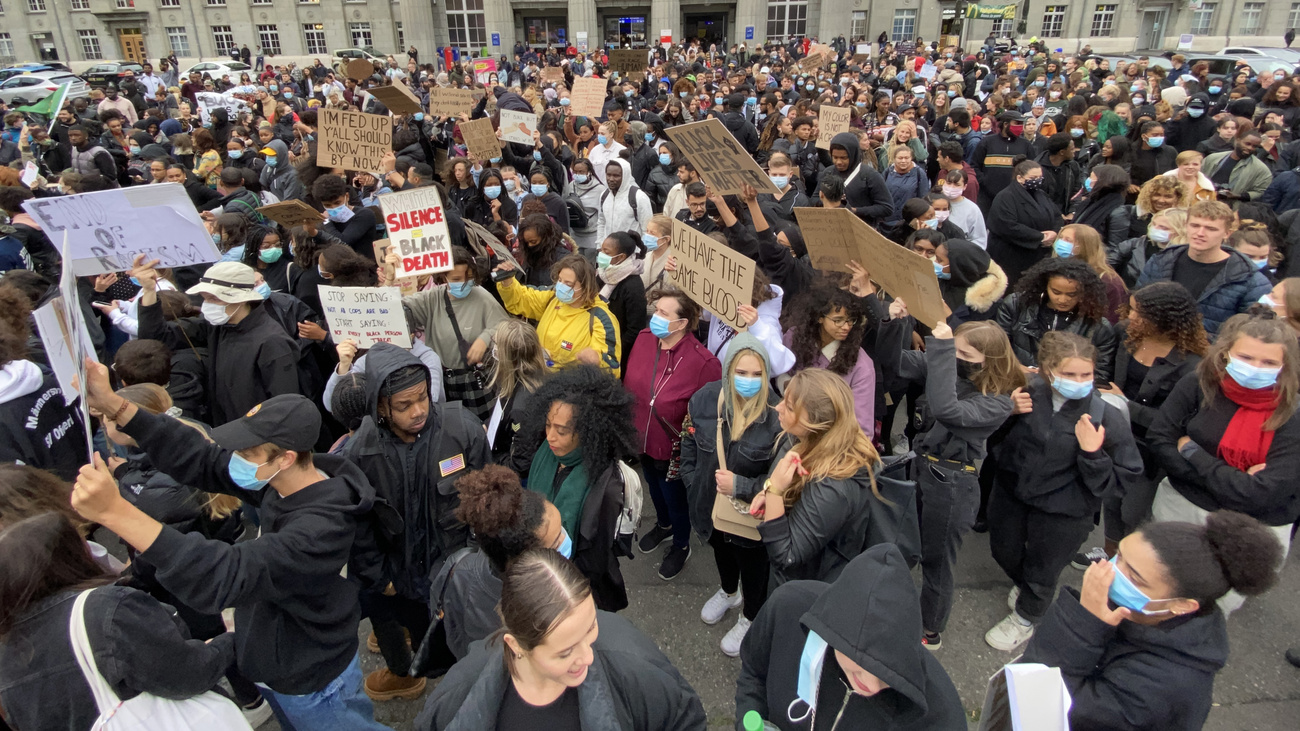More and more racist incidents reported in Swiss schools

Last year, more racist incidents were reported in Switzerland than ever before. For the first time, the majority of reports did not concern incidents in the workplace, but incidents in schools.
An 11-year-old pupil is repeatedly insulted in the class chat and called the N-word, among other things. Black pupils are locked in the equipment room during PE lessons and called racist names by classmates.
These are just some of the examples listed in the latest racism report compiled by the Federal Commission against Racism in collaboration with the organisation Human Rights and the Racism Advisory Network.
According to the report, 876 cases of racism were reported last year. This is 24% more reported cases than in the previous year.
“Most of the incidents reported in the education sector concern black people. They report belittling, verbal abuse, racist bullying or even discrimination,” says Gina Vega, head of the counselling network for victims of racism.
In the education sector, the number of reports is increasing from year to year. However, it cannot be concluded from this that there is more racism in schools today than in the past, says Alma Wiecken, director of the Federal Commission against Racism. The figures do not show where the most racism occurs, but in which areas the most incidents are reported, she said, concluding that vigilance is probably the reason for the increase in the education sector.
“I think a lot has happened in terms of raising awareness. Schools have also taken up the issue more now. There has also been progress in education and training and this naturally leads to more reports,” Wiecken said.
Greater awareness of the problem in schools
When racist incidents occur in schools, it is not only those affected who turn to counselling centres, but often teachers and parents too.

More
One in six people in Switzerland suffers racial discrimination
Schools cannot be expected to provide all the answers to the problems themselves, Wiecken said, explaining that not every school can set up an internal counselling centre. However, it is important that there is a contact person at every school, she said. “The pupils and teachers need to know who they can turn to if they have questions or problems in this regard. But it also makes sense to involve an external counselling centre.”
This can then advise the schools on how to respond appropriately to the incidents. Racism in schools is therefore reported more often. This shows that awareness of the problem has increased in schools and in society in general.
Translated from German by DeepL/ts

More
Expert group criticises systemic racism in Switzerland

In compliance with the JTI standards
More: SWI swissinfo.ch certified by the Journalism Trust Initiative








You can find an overview of ongoing debates with our journalists here . Please join us!
If you want to start a conversation about a topic raised in this article or want to report factual errors, email us at english@swissinfo.ch.